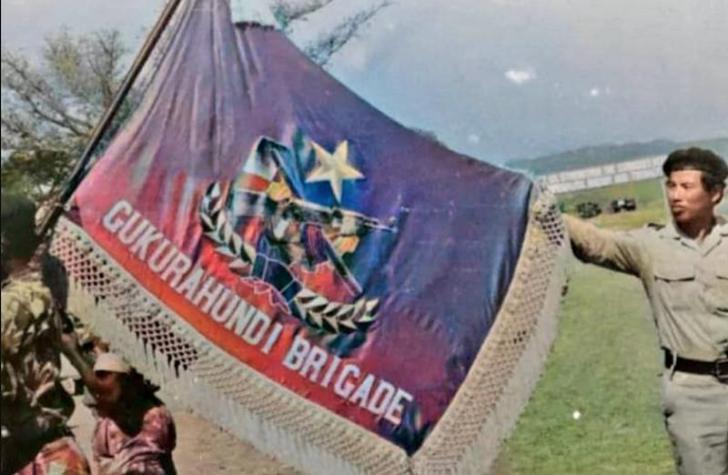News / National
Mnangagwa's govt procures vehicles to kick-start genocide hearings
14 Nov 2024 at 09:28hrs |
0 Views

The Government of Zimbabwe is in the process of procuring all-terrain vehicles for use during the Gukurahundi hearings programme, which is set to begin soon. The announcement was made yesterday by the Chiefs Council of Zimbabwe president, Chief Mtshane Khumalo, during a strategic planning workshop held in Bulawayo for the Ministry of Local Government and Public Works.
Chief Khumalo stated that the procurement of these vehicles was crucial to ensuring that the hearings, set to address the sensitive and long-standing Gukurahundi issue, proceed smoothly without being hindered by challenging weather conditions. He emphasized the importance of securing all-terrain vehicles, as the region's roads could become impassable during the rainy season.
"The Government is now in the process of acquiring vehicles, and once they are procured, the programme will get underway," said Chief Khumalo. "We have advised the Government to ensure the vehicles are all-terrain so that the programme doesn't stop due to impassable roads. Each chief will have 14 panel members, which means we need larger vehicles, as the initial ones were too small."
The Gukurahundi hearings, part of an effort to address the emotional and historical grievances arising from the 1980s conflict in Zimbabwe's Matabeleland region, are designed to give victims a platform to share their stories and promote national healing. The initiative aligns with the 1987 Unity Accord between Zanu-PF and-PF-Zapu, aiming to foster reconciliation and peace among Zimbabweans.
The programme, which will be led by chiefs who will head 14-member panels, is set to take place in the Matabeleland North and Matabeleland South provinces. President Emmerson Mnangagwa launched the community outreach programme in July, underscoring its importance as a step toward healing, unity, and long-term peace.
In his address during the launch, President Mnangagwa stressed that the initiative would help heal historical wounds and foster national unity. "The children of Zimbabwe are descendants of warriors and nation-builders. We have always stood united in the face of challenges, and it is this collective spirit that continues to guide us in our efforts to heal," he said.
The Government's efforts to resolve the Gukurahundi issue began in 2019 as part of the Second Republic's broader initiative to strengthen national unity and provide a home-grown solution to past grievances.
Chief Khumalo reassured the nation that once the vehicles were in place, the hearings would commence promptly, allowing affected communities to participate in the process and share their experiences. He further emphasized that the programme was not just about addressing past wrongs but also about ensuring a united and peaceful future for all Zimbabweans.
"As we share our stories, the wounds of the past will begin to mend, enabling national healing," President Mnangagwa added. "Let us choose reconciliation over retribution, and emerge stronger as a nation."
The Government has committed to ensuring that the programme is conducted smoothly, with the active participation of traditional leaders and key stakeholders, all working toward the goal of lasting peace and unity.
Chief Khumalo stated that the procurement of these vehicles was crucial to ensuring that the hearings, set to address the sensitive and long-standing Gukurahundi issue, proceed smoothly without being hindered by challenging weather conditions. He emphasized the importance of securing all-terrain vehicles, as the region's roads could become impassable during the rainy season.
"The Government is now in the process of acquiring vehicles, and once they are procured, the programme will get underway," said Chief Khumalo. "We have advised the Government to ensure the vehicles are all-terrain so that the programme doesn't stop due to impassable roads. Each chief will have 14 panel members, which means we need larger vehicles, as the initial ones were too small."
The Gukurahundi hearings, part of an effort to address the emotional and historical grievances arising from the 1980s conflict in Zimbabwe's Matabeleland region, are designed to give victims a platform to share their stories and promote national healing. The initiative aligns with the 1987 Unity Accord between Zanu-PF and-PF-Zapu, aiming to foster reconciliation and peace among Zimbabweans.
The programme, which will be led by chiefs who will head 14-member panels, is set to take place in the Matabeleland North and Matabeleland South provinces. President Emmerson Mnangagwa launched the community outreach programme in July, underscoring its importance as a step toward healing, unity, and long-term peace.
In his address during the launch, President Mnangagwa stressed that the initiative would help heal historical wounds and foster national unity. "The children of Zimbabwe are descendants of warriors and nation-builders. We have always stood united in the face of challenges, and it is this collective spirit that continues to guide us in our efforts to heal," he said.
The Government's efforts to resolve the Gukurahundi issue began in 2019 as part of the Second Republic's broader initiative to strengthen national unity and provide a home-grown solution to past grievances.
Chief Khumalo reassured the nation that once the vehicles were in place, the hearings would commence promptly, allowing affected communities to participate in the process and share their experiences. He further emphasized that the programme was not just about addressing past wrongs but also about ensuring a united and peaceful future for all Zimbabweans.
"As we share our stories, the wounds of the past will begin to mend, enabling national healing," President Mnangagwa added. "Let us choose reconciliation over retribution, and emerge stronger as a nation."
The Government has committed to ensuring that the programme is conducted smoothly, with the active participation of traditional leaders and key stakeholders, all working toward the goal of lasting peace and unity.
Source - The Herald
Join the discussion
Loading comments…
































